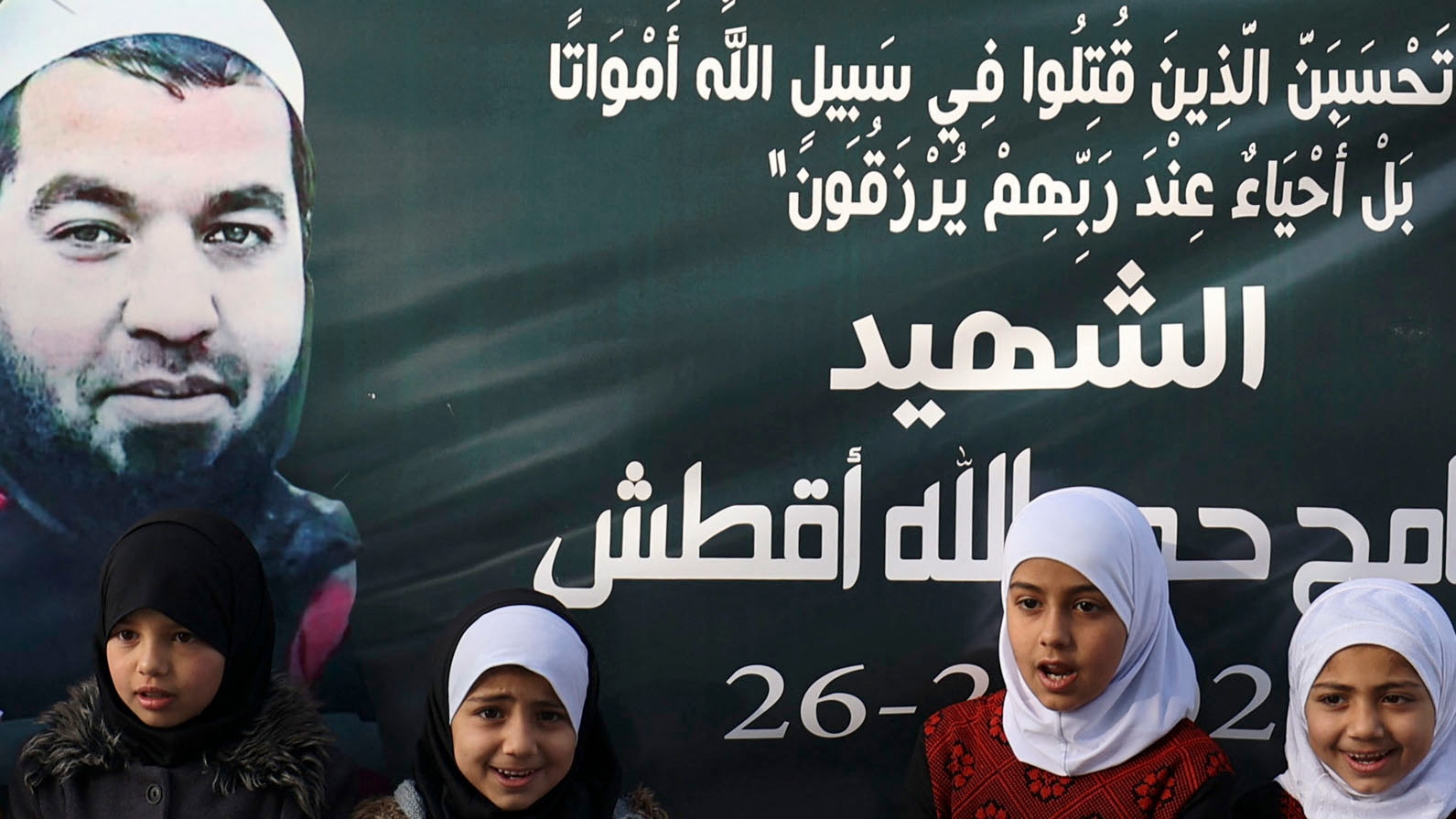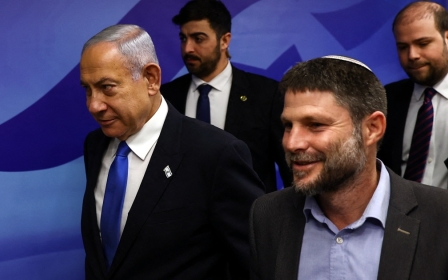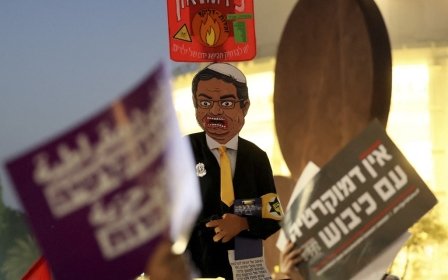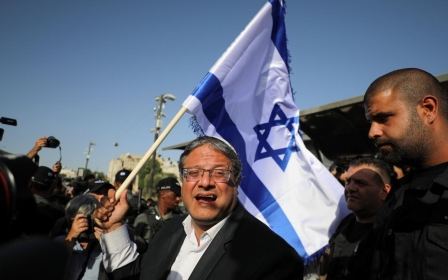Huwwara riots: Video shows Israeli soldiers present when Palestinian was killed

Israeli soldiers were present when settlers rampaged through the Palestinian village of Zatara and during the fatal shooting of a Palestinian man last week.
Sicha Mekomit, an independent Israeli news site, published video analysis and footage from the rampage in the village on the evening of Sunday, 26 February.
Sameh al-Aqtash, 37, a Palestinian resident of Zatara, was shot during the evening when around 40 to 50 settlers attacked the village. Video footage taken by Palestinians shows at least two Israeli army jeeps and a police car at the scene, not intervening to stop the settlers' rampage.
'The army, instead of turning [the settlers] back, helped them: they also fired live bullets at us. That's how my cousin, Sameh, was murdered'
- Ayman Aqtash, Zatara
Several shots were heard after 8:44pm local time, before Palestinians figured out in the darkness that Aqtash was shot. The 14 videos taken taken from the phones of three people do not clarify if settlers or Israeli soldiers shot the bullets.
Palestinians in Zatara, a small village in the north of the West Bank, saw their houses and shops vandalised by settlers in apparent retaliation for the killing of two settlers in the town of Huwwara, which was also subjected to riots.
New MEE newsletter: Jerusalem Dispatch
Sign up to get the latest insights and analysis on Israel-Palestine, alongside Turkey Unpacked and other MEE newsletters
Masked settlers had approached Zatara from Taffuh junction after 7pm, hurled rocks at residents' houses and flashed a laser pointer at Palestinians, who pushed them back to the main road and threw stones at them.
Abed, Aqtash's older brother, said the settlers left and returned half an hour later, escorted by Israeli soldiers, a security vehicle from a nearby settlement, and a rabbi.
He said that five shots were heard. "They started shooting live fire. They didn't throw gas, stun, or rubber bullets, immediately [they shot] live fire," Abed said.
"Everything was dark. I didn't see if the person who murdered my brother was a soldier or a settler," he added.
Joint attack
Ayman Aqtash, his cousin, said: "We were surprised when the settlers attacked us. Soldiers in the army protected them, as well as guards of the settlements.
"The settlers shot live bullets at us, and threw stones. The army, instead of turning them back, helped them: they also fired live bullets at us. That's how my cousin, Sameh, was murdered."
Aqtash was shot with a bullet in the stomach, which damaged his spleen and left him with intensive bleeding before he was pronounced dead at Beita medical centre in a nearby town.
"It happened in front of the people's eyes, within the confines of our house. The attack happened entirely under the auspices of the army.
"I don't know who shot, settlers or soldiers. I was standing right next to him. Everything was dark," his cousin, Ayman, said.
Zatara is located south of Nablus, near an infamous Israeli military checkpoint where, according to residents, soldiers abuse Palestinians on a daily basis.
Only 100 people live in Zatara, and they are all members of the same extended family. Most of them are women and children. Their houses are mostly single-storey, and they have erected a 1.5-metre tall fence around the village and installed an iron gate to protect it from settlers' attacks.
Residents of Zatara are banned by the Israeli military from building on their land, which pushed young families to live in the nearby Beita village. In 2016, a children's playground built with Belgium government funds was razed by the Israelis.
Middle East Eye delivers independent and unrivalled coverage and analysis of the Middle East, North Africa and beyond. To learn more about republishing this content and the associated fees, please fill out this form. More about MEE can be found here.




